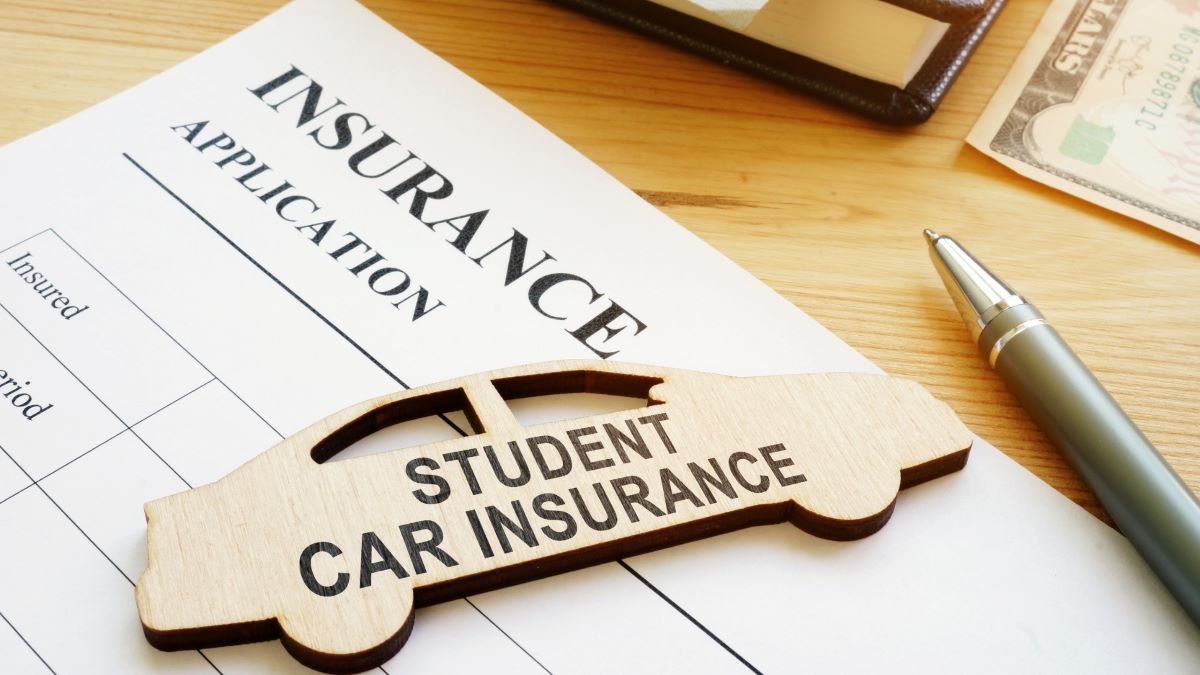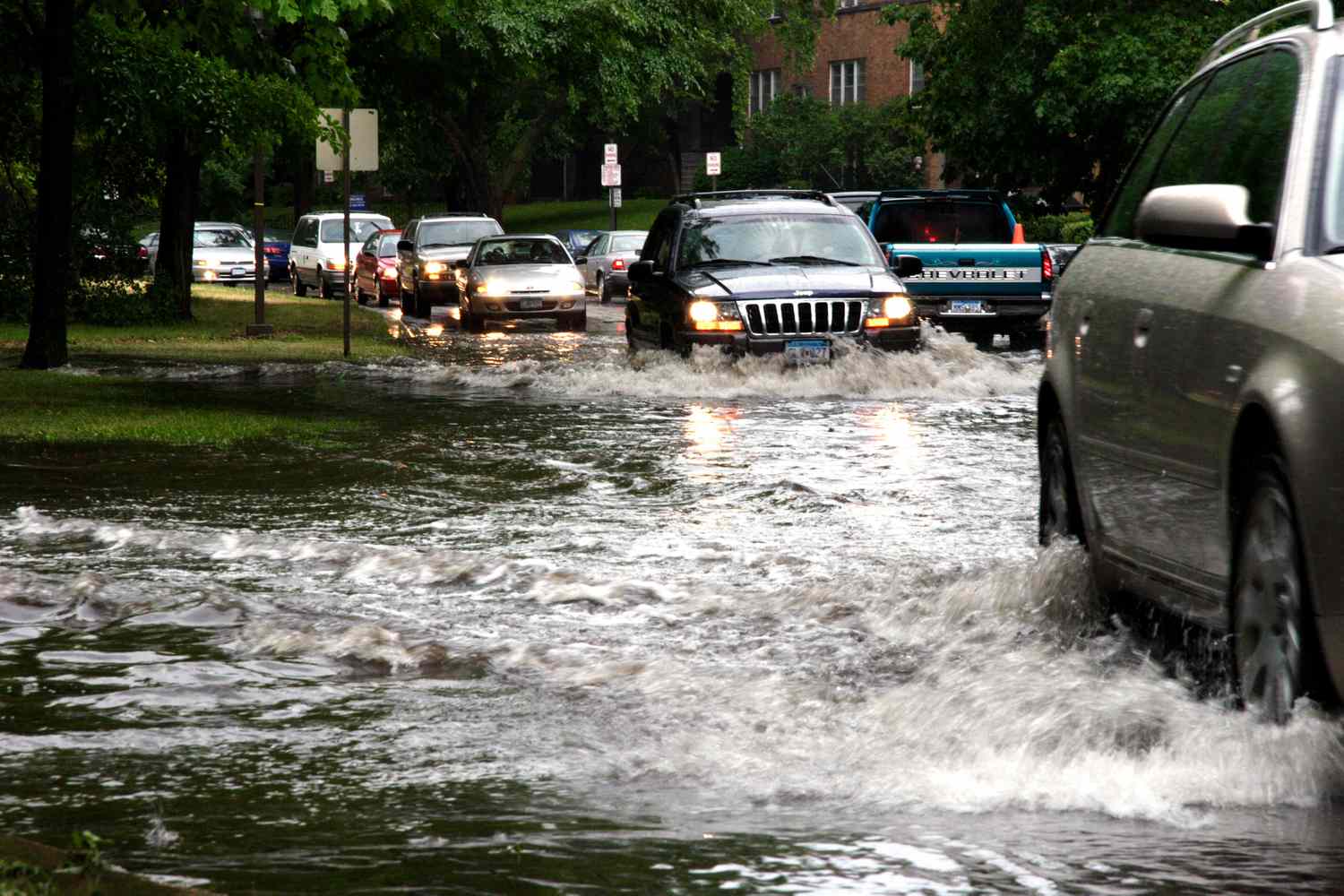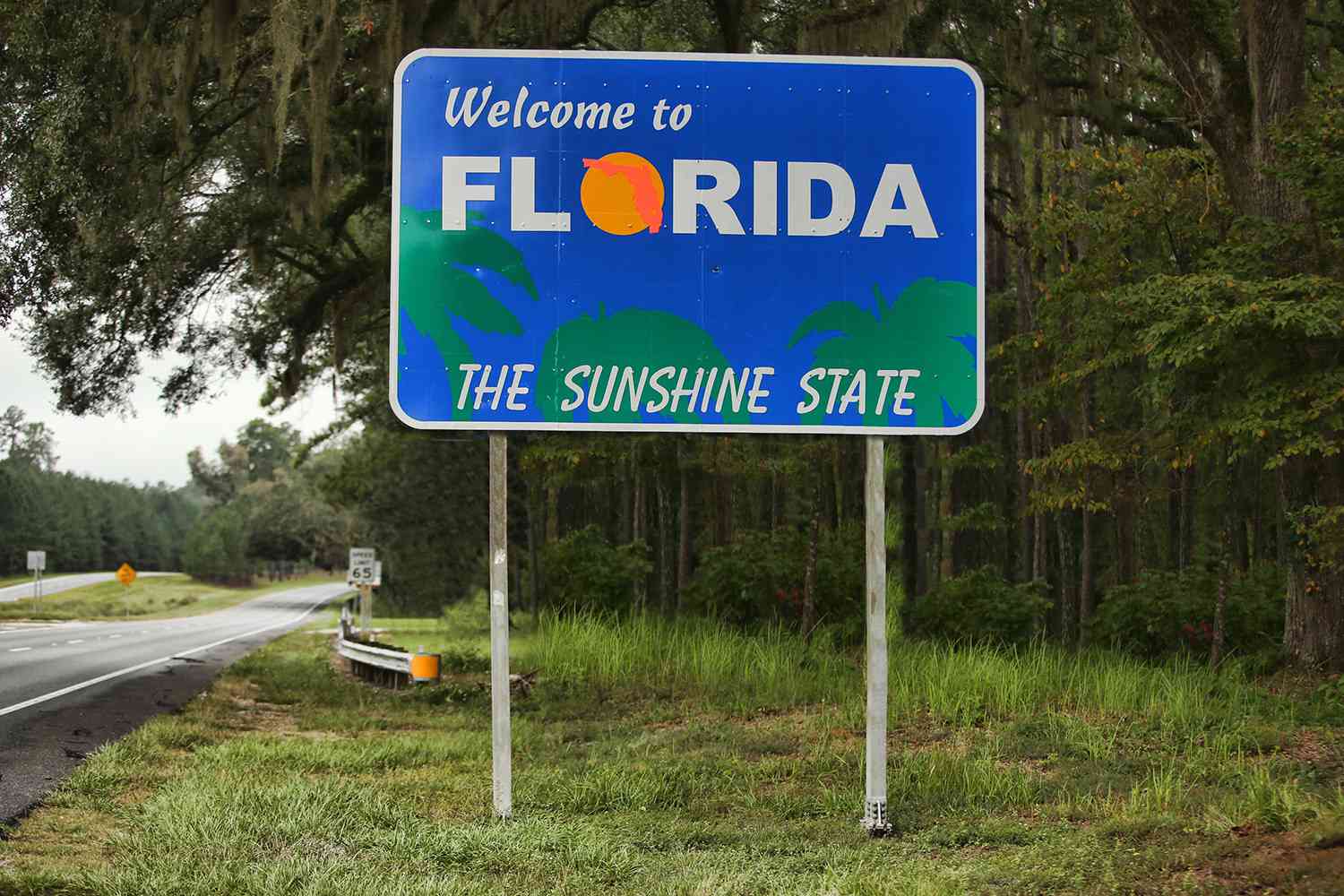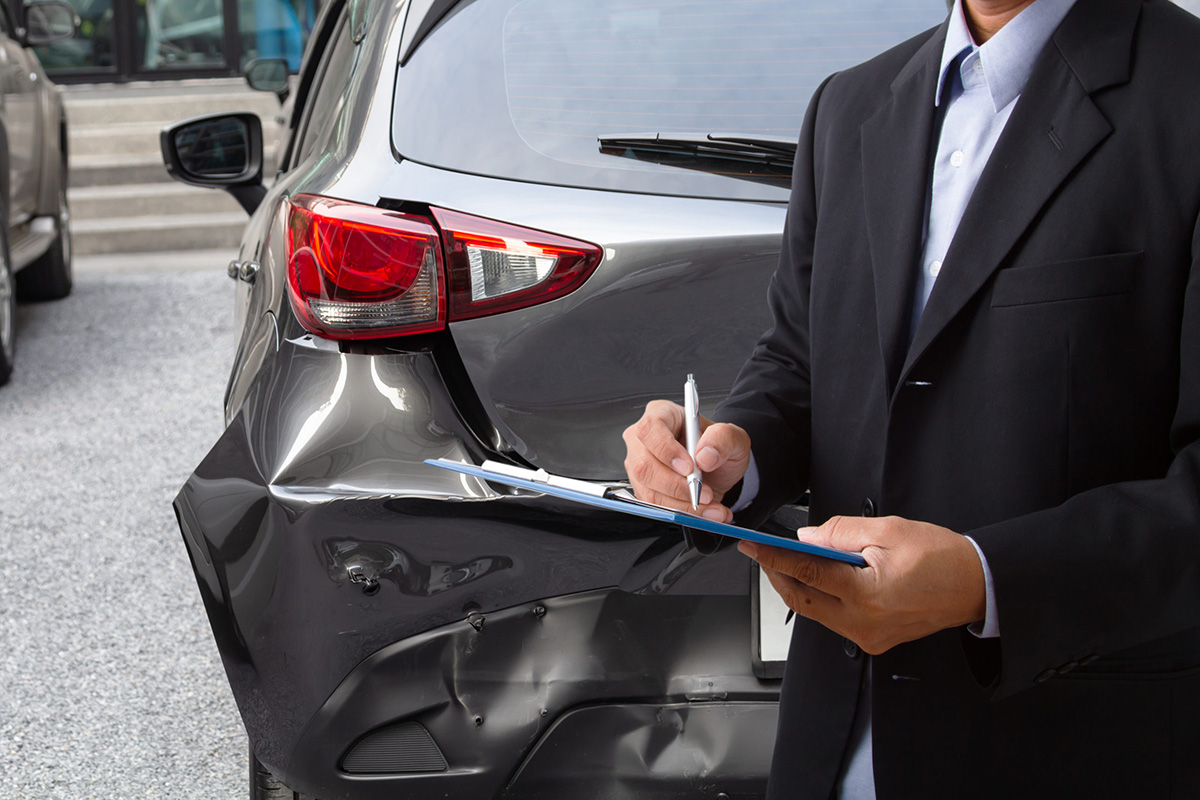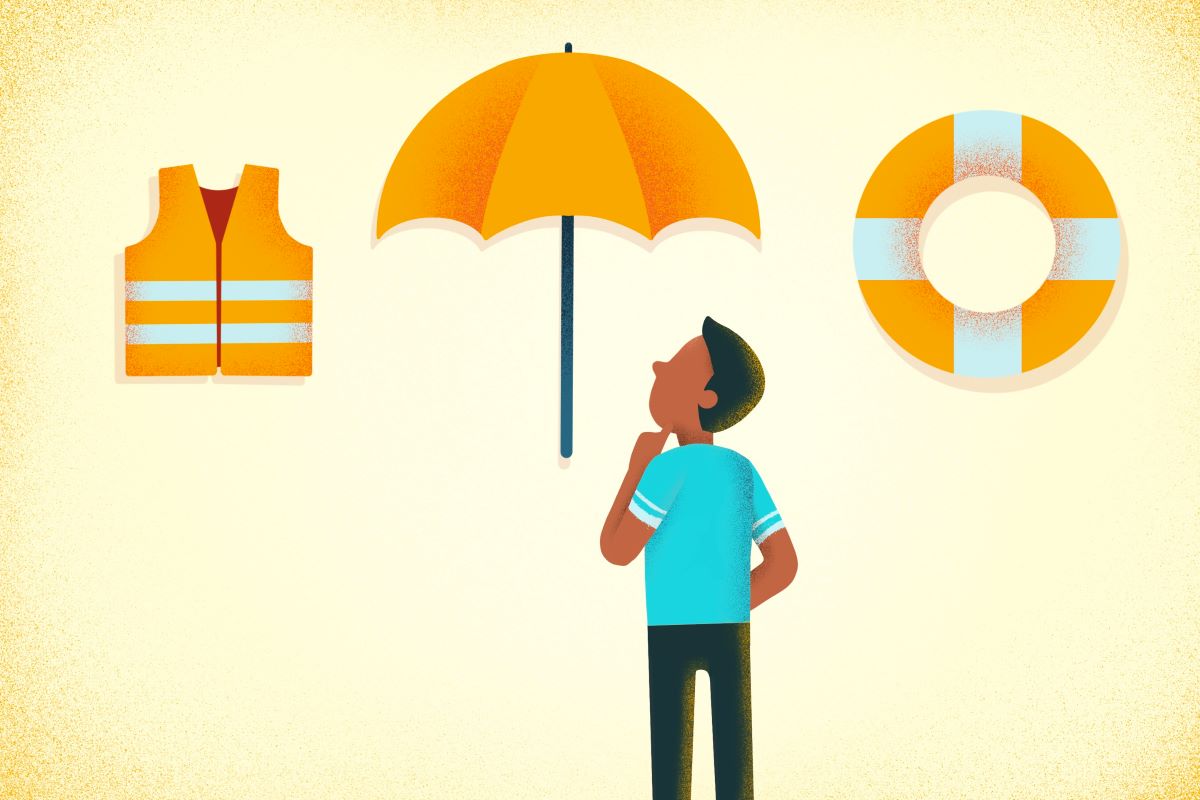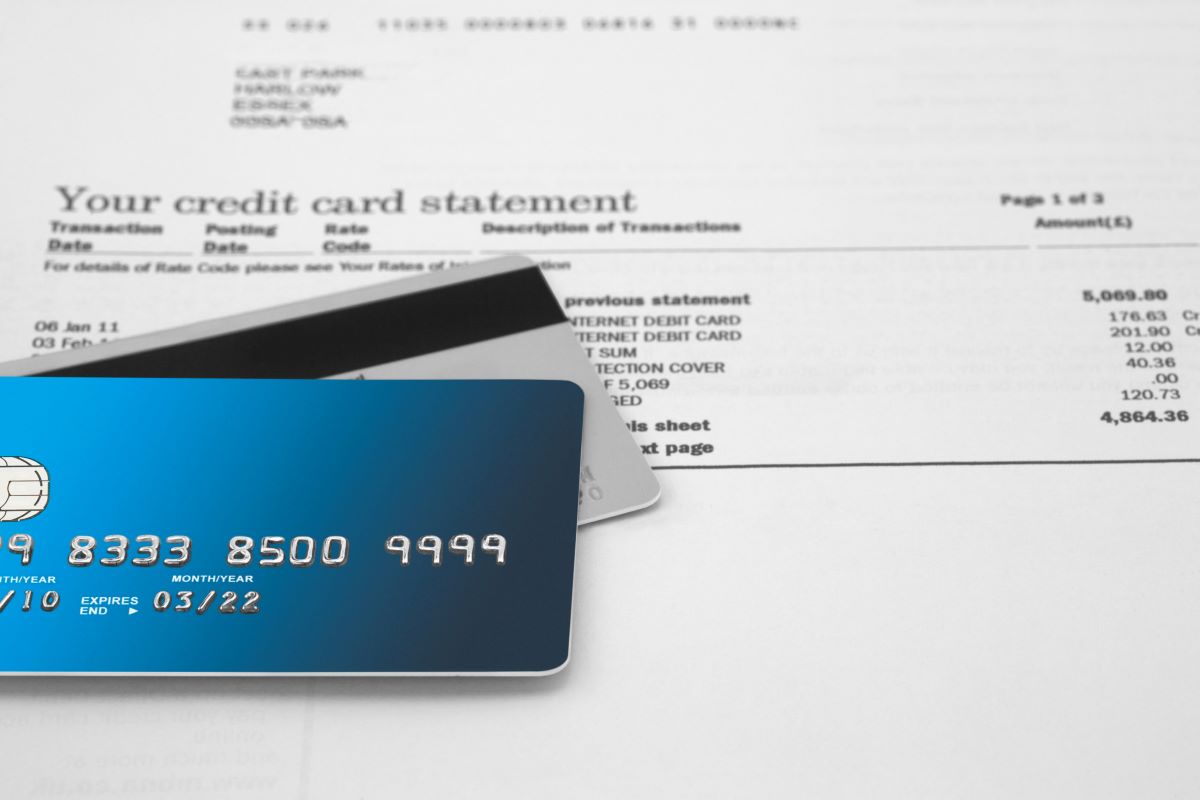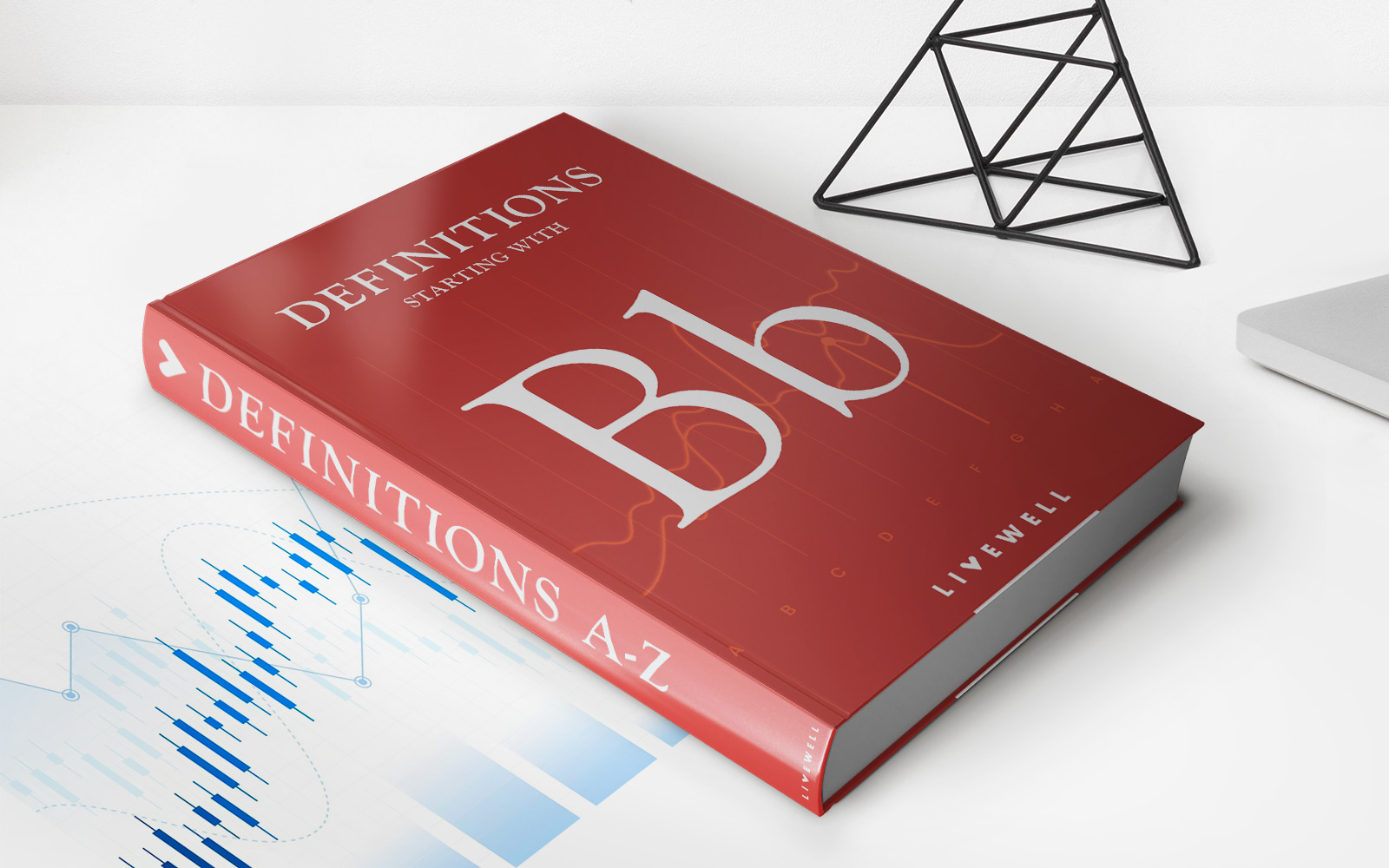Home>Finance>What Are The Two Types Of Required Insurance Coverage To Comply With Florida’s No-Fault Law?
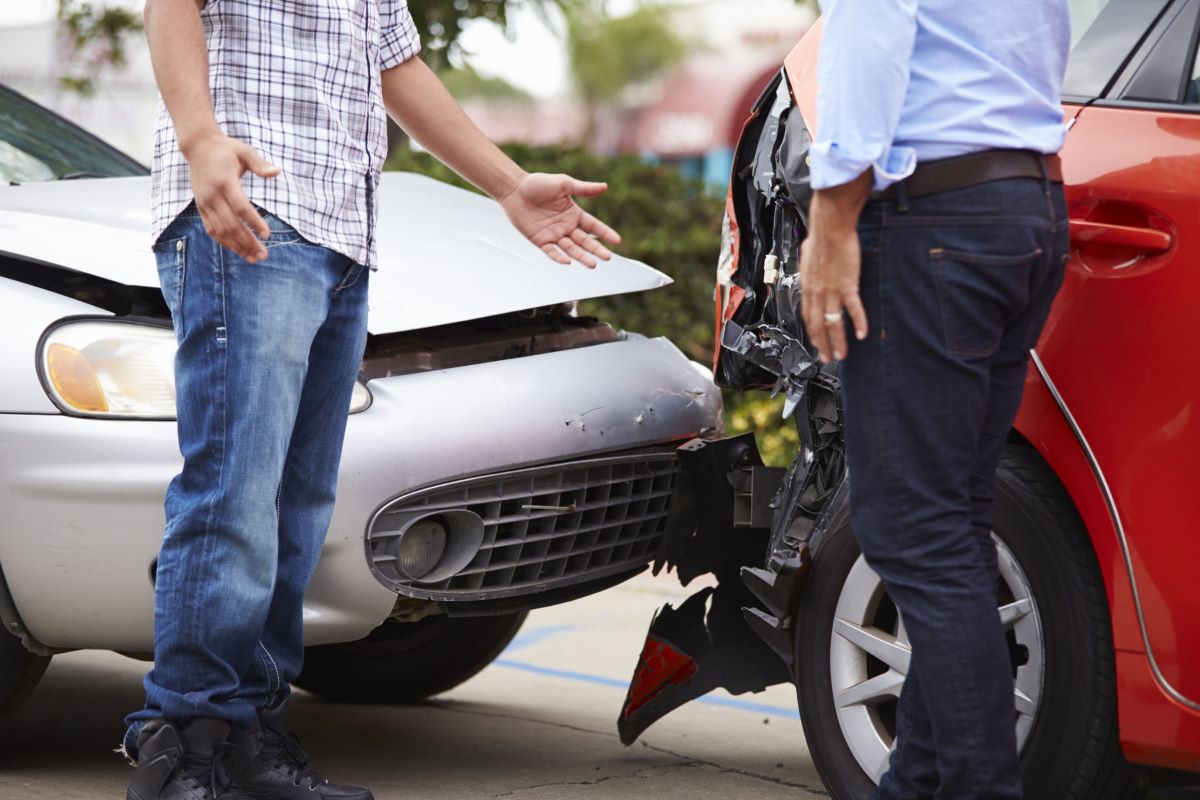

Finance
What Are The Two Types Of Required Insurance Coverage To Comply With Florida’s No-Fault Law?
Modified: February 21, 2024
Explore the two essential types of insurance coverage needed in Florida to meet the requirements of the No-Fault Law, ensuring financial security and compliance with the state's regulations.
(Many of the links in this article redirect to a specific reviewed product. Your purchase of these products through affiliate links helps to generate commission for LiveWell, at no extra cost. Learn more)
Table of Contents
Introduction
Florida’s no-fault law requires drivers to have certain types of insurance coverage to comply with state regulations. Under this law, every driver is required to carry Personal Injury Protection (PIP) coverage and Property Damage Liability (PDL) coverage. These insurance policies are designed to provide financial protection in the event of a car accident, covering personal injury expenses and property damage caused by the insured driver.
Understanding the requirements and importance of these insurance coverages is crucial for every driver in Florida. In this article, we will delve into the specifics of each coverage type, the minimum requirements set by the state, and the potential consequences of non-compliance. We will also discuss additional optional coverages that can provide added protection and peace of mind on the roads.
It is important to note that while this article outlines the general requirements for insurance coverage in Florida, it is always recommended to consult with an insurance professional or review the official state guidelines for the most accurate and up-to-date information.
Understanding Florida’s No-Fault Law
Florida’s no-fault law, also known as the Personal Injury Protection (PIP) law, is a system that requires drivers to carry insurance coverage to pay for their own injuries and damages regardless of who caused the accident. This means that after an accident, each driver’s insurance company is responsible for covering their own medical expenses and other related costs, regardless of who was at fault.
The purpose of this law is to provide swift and efficient compensation for accident-related injuries while reducing the burden on the court system by avoiding lengthy legal battles to determine fault. Under the no-fault system, drivers can quickly receive the necessary medical treatment without having to wait for a resolution to their insurance claims.
However, it’s important to note that the no-fault law does not absolve drivers from the responsibility of carrying insurance coverage. In fact, it mandates that drivers must have the minimum required coverage to legally operate a vehicle in the state of Florida.
Under Florida law, failure to comply with the no-fault requirements can result in penalties, such as fines, driver’s license suspension, and even the impoundment of the vehicle. Therefore, it is essential for all drivers in Florida to understand and abide by the insurance requirements set forth by the state.
The Importance of Insurance Coverage
Having adequate insurance coverage is crucial for every driver, regardless of the state’s legal requirements. In Florida, where the no-fault law is in place, the importance of insurance coverage is even more significant.
First and foremost, insurance coverage provides financial protection in the event of an accident. Medical expenses can quickly escalate, especially in cases of severe injuries, and having insurance coverage can help mitigate these costs. Without insurance, individuals may be left with hefty medical bills that can have long-term financial repercussions.
In addition to covering medical expenses, insurance also provides coverage for property damage. If a driver causes an accident that results in damage to another vehicle or property, their insurance will cover the cost of repairs or replacement. Without proper insurance coverage, drivers may be held personally liable for these damages, which can incur significant expenses and potential legal consequences.
Insurance coverage also extends beyond personal protection. It plays a role in ensuring that all individuals involved in accidents receive necessary medical treatment promptly. Through the no-fault system, the injured parties can seek immediate medical attention without having to wait for fault determinations or legal proceedings.
Moreover, insurance coverage provides peace of mind. Knowing that you are financially protected in the event of an accident allows you to focus on your recovery rather than worrying about the associated costs. It also ensures that other drivers on the road are protected from potential financial hardship caused by your actions.
While insurance coverage is typically viewed as a precautionary measure, it is also a legal requirement in Florida. Failing to carry the mandatory insurance coverage can lead to severe penalties, including fines, license suspension, and vehicle impoundment. Therefore, understanding and complying with the insurance requirements is essential for all drivers to avoid these adverse consequences.
Overall, insurance coverage provides financial protection, timely medical treatment, peace of mind, and legal compliance. It is a vital component of responsible driving and safeguards against the potentially dire consequences of accidents.
Type 1: Personal Injury Protection (PIP) Coverage
Personal Injury Protection (PIP) coverage is a mandatory insurance requirement under Florida’s no-fault law. It provides coverage for medical expenses and certain non-medical expenses that occur as a result of a car accident, regardless of who is at fault.
PIP coverage typically covers the following expenses:
- Medical expenses: This includes hospital visits, doctor’s fees, diagnostic tests, surgery, medication, and rehabilitation costs.
- Lost wages: If the accident causes you to miss work, PIP coverage can help replace a portion of your lost income.
- Funeral expenses: In the unfortunate event of a fatal accident, PIP coverage provides financial assistance for funeral and burial costs.
- Death benefits: PIP coverage may also provide death benefits to the surviving dependents of a policyholder who dies as a result of a car accident.
It’s important to note that PIP coverage is typically limited in terms of the amount it will pay out. The minimum PIP coverage required by Florida law is $10,000, but drivers have the option to purchase additional coverage for higher limits.
PIP coverage applies to the policyholder and their household members, as well as passengers in their vehicle at the time of the accident. It may also extend to pedestrians and cyclists who are involved in a car accident.
One of the key benefits of PIP coverage is its promptness in providing coverage for medical expenses. Unlike other insurance policies that require a lengthy claims process and may involve disputes over fault, PIP coverage allows individuals to seek immediate medical treatment without worrying about fault determination or delays in reimbursement.
However, it’s important to keep in mind that PIP coverage has its limitations. It only covers a specific set of expenses and may not include costs like pain and suffering or property damage. For these reasons, it’s advisable to consider additional insurance coverage to supplement the protection provided by PIP.
Ultimately, Personal Injury Protection (PIP) coverage is a crucial component of insurance coverage in Florida. It ensures that all parties involved in a car accident can receive timely medical treatment and compensation for their injuries, regardless of who is at fault.
Type 2: Property Damage Liability (PDL) Coverage
Property Damage Liability (PDL) coverage is the second mandatory insurance requirement under Florida’s no-fault law. It provides coverage for damages to other people’s property caused by the insured driver in a car accident.
PDL coverage typically includes the following:
- Damage to vehicles: If the insured driver is at fault for an accident that results in damage to another vehicle, PDL coverage covers the costs of repairs or replacement.
- Property damage: PDL coverage also extends to damage caused to other types of property, such as buildings, fences, and other structures.
- Legal expenses: PDL coverage may also provide coverage for legal defense costs if the insured driver is sued by the other party involved in the accident.
The minimum required PDL coverage in Florida is $10,000. This means that the insurance policy must provide at least $10,000 in coverage for property damage caused by the insured driver. However, drivers have the option to purchase additional coverage to ensure they are adequately protected in the event of an accident.
PDL coverage is essential because it protects the insured driver from incurring significant out-of-pocket expenses if they cause damage to someone else’s property. Without PDL coverage, drivers would be personally responsible for covering the costs of repairs or replacement, which can be financially burdensome.
It is important to note that PDL coverage only applies to damages caused by the insured driver to others’ property. It does not cover the insured driver’s own vehicle. To protect against damage to your own vehicle, you would need to consider additional coverage, such as collision coverage or comprehensive coverage.
Additionally, PDL coverage does not cover bodily injury or medical expenses for other parties involved in the accident. For that, Personal Injury Protection (PIP) coverage is required under Florida law.
Having sufficient PDL coverage is not only a legal requirement but also a responsible financial decision. It protects both the insured driver and other individuals involved in an accident by ensuring that property damages are appropriately compensated.
As with any insurance coverage, it is advisable to review your policy carefully and consider additional coverage options to ensure you have adequate protection based on your needs and circumstances.
The Minimum Coverage Requirements
Florida law mandates certain minimum coverage requirements that all drivers must adhere to in order to comply with the no-fault law. These requirements ensure that drivers have a basic level of financial protection in the event of an accident.
The minimum coverage requirements in Florida are as follows:
- Personal Injury Protection (PIP) Coverage: Every driver must carry a minimum of $10,000 in PIP coverage. This coverage pays for medical expenses, lost wages, funeral expenses, and death benefits resulting from a car accident, regardless of fault.
- Property Damage Liability (PDL) Coverage: The minimum PDL coverage required in Florida is also $10,000. This coverage pays for damages to other people’s property caused by the insured driver in a car accident.
It’s important to note that these minimum coverage requirements are the legal minimum and may not always be sufficient to cover the full extent of damages and expenses in a serious accident. Drivers have the option to purchase additional coverage to ensure they are adequately protected.
While these are the minimum requirements set by Florida law, insurance companies may offer higher coverage limits for both PIP and PDL. It is advisable to evaluate your own circumstances and consider purchasing higher coverage limits to provide greater protection in the event of an accident.
Moreover, certain vehicles, such as taxis and commercial vehicles, have higher minimum coverage requirements due to the increased risk and potential damages they may cause in accidents.
Keep in mind that insurance companies have options for deductibles and coverage limits, which can vary depending on the policy and the insurance provider. It is important to review different coverage options and consult with an insurance professional to determine the appropriate coverage for your needs.
Meeting the minimum coverage requirements is not only a legal obligation but also a responsible financial decision. Ensuring that you have the required insurance coverage provides you with the necessary protection and safeguards against potential financial burdens resulting from an accident.
Penalties for Non-Compliance
Non-compliance with the insurance coverage requirements set forth by Florida’s no-fault law can result in severe penalties. It is crucial to understand and comply with these requirements to avoid potential legal and financial consequences.
Failure to carry the minimum required insurance coverage can lead to the following penalties:
- Fines: Drivers who are found to be operating a vehicle without the legally required coverage may face fines. The amount of the fine can vary depending on the specific circumstances, but it can be significant.
- License Suspension: The state has the authority to suspend your driver’s license and vehicle registration if you are driving without the mandatory insurance coverage. This means that you will not be legally allowed to drive until you obtain the necessary coverage and pay any associated fines or fees.
- Vehicle Impoundment: In some cases, your vehicle may be impounded if you are caught driving without the required insurance coverage. This means that your vehicle will be towed and held until you can provide proof of insurance or fulfill other legal requirements. The costs of impoundment and towing fees must be paid by the vehicle owner.
- Higher Insurance Premiums: Non-compliance with the insurance coverage requirements can also result in higher insurance premiums in the future. Insurance providers may view drivers without continuous coverage as high-risk individuals and may charge higher rates as a result.
It is important to note that penalties for non-compliance may vary depending on individual circumstances, previous violations, and the discretion of the courts. The best course of action is to always maintain the required insurance coverage and ensure that it remains active and up to date.
Complying with the insurance coverage requirements is not only a legal obligation but also a responsible decision that protects you, other drivers, and pedestrians on the road. It provides the necessary financial protection in the event of an accident, ensuring that you can handle the associated costs without placing a burden on others.
To avoid penalties for non-compliance, it is advisable to review your insurance policy regularly, stay informed about any changes in the requirements, and consult with an insurance professional to ensure that you have the appropriate coverage for your needs.
Additional Optional Insurance Coverages
In addition to the mandatory Personal Injury Protection (PIP) and Property Damage Liability (PDL) coverage required by Florida’s no-fault law, drivers have the option to purchase additional insurance coverages that provide added protection and peace of mind on the roads.
Here are some optional insurance coverages to consider:
- Bodily Injury Liability (BIL) Coverage: While not mandatory in Florida, BIL coverage can be a valuable addition to your insurance policy. It provides coverage for injuries caused to other individuals involved in an accident for which you are at fault. BIL coverage helps protect your assets by covering legal expenses if you are sued for causing bodily injury to others.
- Uninsured/Underinsured Motorist (UM/UIM) Coverage: This coverage protects you if you are involved in an accident with a driver who doesn’t have insurance or has insufficient coverage to fully compensate for damages or injuries. UM/UIM coverage can help cover medical expenses, lost wages, and other damages that you may not be able to recover from the uninsured or underinsured driver.
- Collision Coverage: Collision coverage pays for the repair or replacement of your own vehicle in the event of an accident, regardless of who is at fault. It provides coverage for damages caused by collisions with other vehicles or objects.
- Comprehensive Coverage: Comprehensive coverage is designed to protect your vehicle against damages that are not caused by collisions, such as theft, vandalism, natural disasters, or falling objects. It provides coverage for repairs or replacement of your vehicle in these situations.
- Rental Car Coverage: If your vehicle is involved in an accident and needs to be repaired, rental car coverage can provide reimbursement for the cost of a rental vehicle while yours is being repaired or replaced.
These additional coverages are optional but can provide valuable protection in various scenarios. Consider your driving habits, the value of your vehicle, and your overall financial situation when deciding on the additional coverages that are right for you.
Keep in mind that the coverage limits, deductible amounts, and premiums associated with these optional coverages can vary. It is essential to carefully review your policy and consult with your insurance provider to understand the terms and select the appropriate coverage for your needs.
By taking advantage of optional insurance coverages, you can enhance the protection provided by the mandatory coverage requirements and ensure that you have comprehensive coverage that suits your specific situation.
Conclusion
Understanding and complying with the insurance coverage requirements set forth by Florida’s no-fault law are crucial for every driver in the state. Personal Injury Protection (PIP) coverage and Property Damage Liability (PDL) coverage are the minimum mandatory coverages that every driver must carry to ensure financial protection in case of an accident.
PIP coverage provides reimbursement for medical expenses, lost wages, funeral expenses, and death benefits, while PDL coverage covers damages to other people’s property caused by the insured driver. These coverages are essential for swift compensation and timely medical treatment, regardless of fault, and play a crucial role in reducing the burden on the court system.
Non-compliance with the insurance coverage requirements can result in penalties such as fines, license suspension, vehicle impoundment, and higher insurance premiums. It is important to maintain continuous coverage and review your policy regularly to ensure compliance and adequate protection.
In addition to mandatory coverages, drivers have the option to purchase additional optional coverages, such as Bodily Injury Liability (BIL) coverage, Uninsured/Underinsured Motorist (UM/UIM) coverage, Collision coverage, Comprehensive coverage, and Rental Car coverage. These optional coverages provide added protection and peace of mind on the roads, safeguarding against unforeseen financial hardships.
Ultimately, having the appropriate insurance coverage is not just a legal obligation but a responsible decision that protects you, other drivers, and pedestrians on the road. It provides the necessary financial support in the event of an accident, allowing you to focus on your recovery without incurring substantial expenses.
Remember to consult with an insurance professional to determine the optimal coverage for your needs and circumstances. By understanding and complying with the insurance requirements and considering additional optional coverages, you can ensure that you have comprehensive protection and peace of mind while driving in Florida.


